Gluten Free Beer. To a celiac, those refreshing words are almost never uttered in the same sentence. Except maybe, “I wish I had a gluten free beer!”
Until around 2006, there was little to no chance this wish would come true. (For my full review of safe gluten-free beers and tasting notes, hop to my article on gluten free beers.)
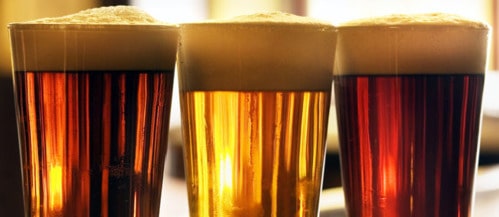
How Is Beer Made?
It seems that as long as man has been farming cereal grains, we’ve been making beer from surplus grains like barley. In fact, archaeologists believe that beer was integral to the early formation of complex civilizations, founded on the importance of feasting ceremonies that brought groups together for political, social, trading and support reasons.
Throughout history, barley has been the primary brewing grain of choice, dating back to at least 3400 B.C.; in fact the oldest food quality regulation still used in the 21st century was based entirely on the limitation of ingredients used in the brewing of beer. This Bavarian law restricted beer makers to using only barley, hops and water – a tradition still upheld by the majority of German breweries and others around the world.
Even in the United States, a “malt beverage” has been defined for regulatory purposes as being made from barley, water and hops, with or without other ingredients for flavor.

Why are There Two Kinds of “Gluten-Free” Beers?
For celiacs and others avoiding gluten-containing grains like barley, enjoying beer was a faint, happy memory until recently.
Once breweries did get into the business of brewing beers for the gluten-free community, two types of non-traditional beers emerged: naturally gluten-free beers made from gluten-free grains (these are safe) and “gluten-reduced,” “low gluten,” “gluten removed,” or “crafted to remove gluten” beers made from barley and other gluten-containing grains (these are not considered safe for celiacs).

Are Gluten-Removed Beers Safe for Celiacs?
Experts caution against celiacs and those with gluten sensitivity drinking these gluten-removed beers, since there is no scientifically accepted test to determine whether such fermented beverages are truly gluten free enough to be safe. “ELISA [testing] as it stands cannot measure the gluten [in beer]. Unless they access an alternate technology they can’t know,” says Michelle Colgrave, a researcher with the government-run Commonwealth Scientific and Industrial Research Organisation (CSIRO) in Australia.
Let me repeat that a different way: there is no acceptable test proving that gluten has actually been fully removed from fermented products like beer. So when a beer company says it’s tested its beers and they are shown to have less than 20ppm gluten … understand that those tests are not accurate when testing beer, so their testing means little to nothing.

“The medical and scientific community has not validated or accepted that these low-gluten or gluten-removed beers are safe because available gluten testing methods have not been sufficiently accurate with fermented and hydrolyzed products,” said Cynthia Kupper, CEO of GIG. “That is why we conducted this first-of-its-kind study, because even if one person with celiac reacts to gluten-removed beers, it shows it would not be appropriate to certify this product category according to our standards.”
(2017 University of Chicago Study conducted in conjunction with the Gluten Intolerance Group, showing that some celiacs react to gluten-reduced beers)
To hear the podcast interview with two authors of the study to determine the safety of gluten removed beers for celiacs, Cynthia Kupper, CEO of the Gluten Intolerance Group and a registered dietitian diagnosed with celiac disease, and Laura Allred, Ph.D. and GIG’s Regulatory and Standards Manager, click here for the free podcast.
Have Studies Shown Gluten-Removed Beers Still Contain Gluten?
As further evidence of the fact that these treated barley beers still contain gluten, a 2017 Australian report found that “[a]cross the range of commercial beers that have been produced using an enzyme, the application of the enzyme appeared to be inconsistent.
There were some beers that had very low levels of gluten, barely detectable, while others had as much as an untreated beer,” Colgrave says. In their paper published in the Journal of Agricultural and Food Chemistry, study authors found gluten in a dozen beers labelled “gluten-reduced” with this new test.
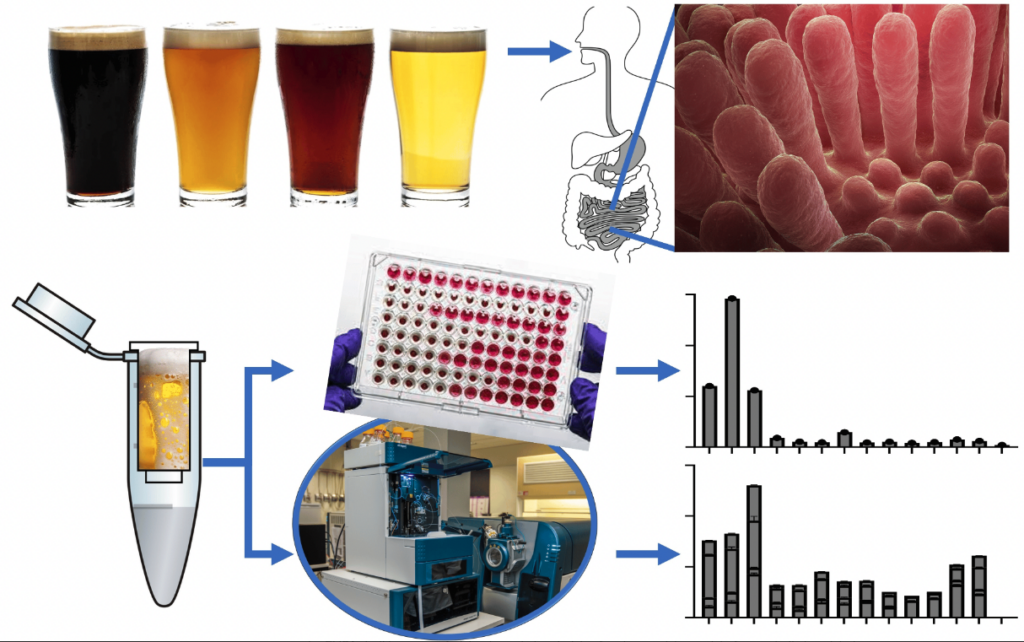
Furthermore, tests using a newer test called liquid chromatography-mass spectrometry (LC-MS) — scientists believe it is a more accurate way to measure gluten in fermented beers — showed that even though all the tested beers “had been rated by their makers to have gluten levels below 20 mg/kg, according to ELISA”, the new test “found detectable gluten fragments in every sample using LC-MS, and most had much higher levels of gluten than ELISA detected.”
The graphical representation above shows the same gluten-removed beer sample being tested by both ELISA and mass spectrometry, with the latter (bottom) test finding more barley hordein (gluten protein) remaining.
Another 2023 Australian study confirmed these conclusions, finding several so-called “gluten-free beers” made from barley but treated with enzymes which showed equal or even higher barley hordein (gluten protein) content than some of the untreated, control beers.
How are “Gluten-Free” Beers Regulated in the United States?
In the U.S., this second kind of beer is not allowed to be labeled as “gluten-free”, although local state laws may differ when the beers do not cross state lines. This distinction is important because like other barley beers, these “gluten-reduced” beers remain under the regulatory umbrella of the TTB (Alcohol and Tobacco Tax and Trade Bureau), while naturally gluten-free beers are within the FDA’s (Food and Drug Administration) labeling jurisdiction.
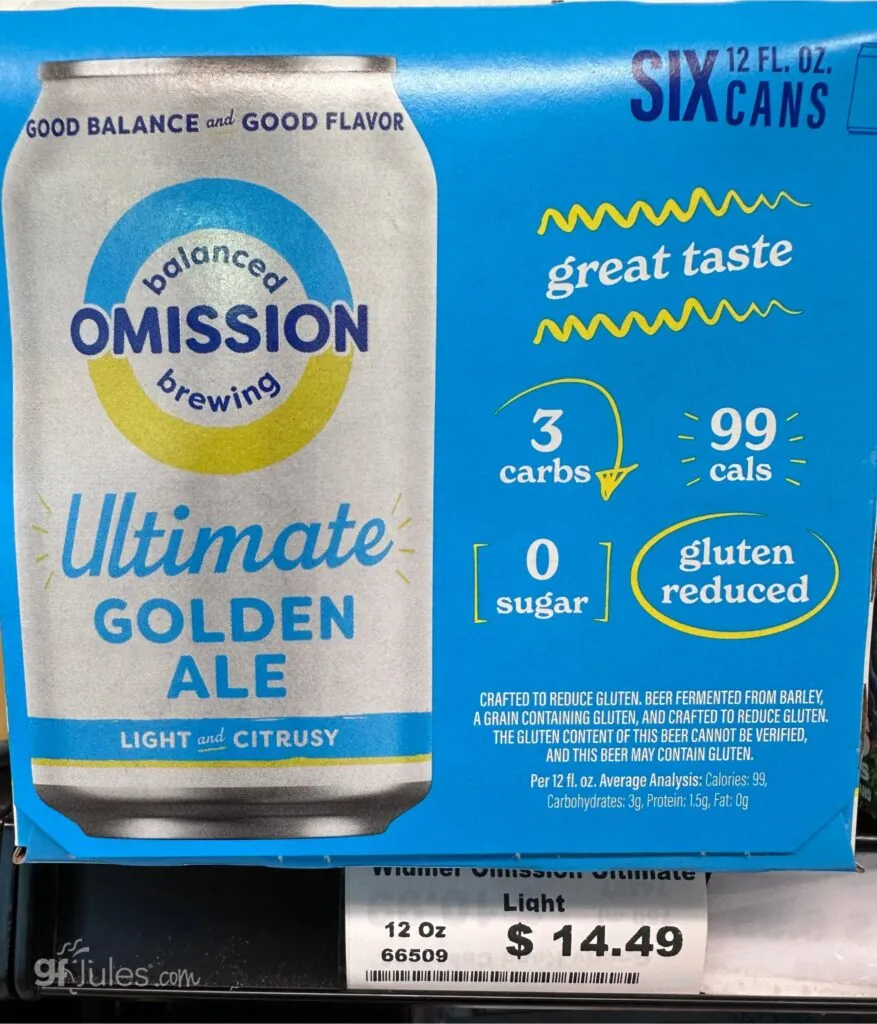
Why does this matter? Well, it matters because these regulating bodies treat labeling very differently. FDA regulates NATURALLY gluten-free beers, and FDA requires a nutrition label, so you know the beer is naturally gluten-free if it has a nutrition label on the packaging (pro shopping tip!).
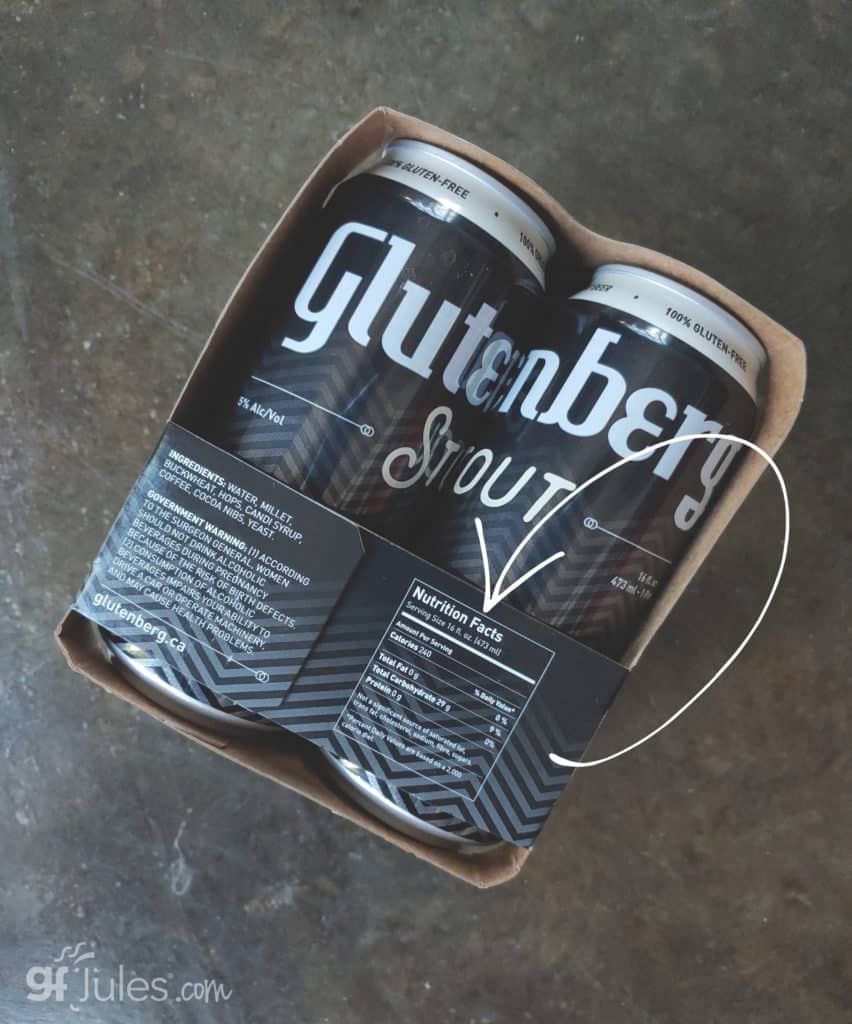
If you are confused about which beers are naturally gluten-free and which are gluten-reduced, choose only beers with a nutrition label, since that indicates it is regulated by the FDA and therefore, does not contain barley. (For more information listen to the podcast interview with GFCO regarding their study).
Since the FDA’s finalization of its gluten-free labeling standard in 2014, the TTB released this position statement on the labeling of gluten-reduced barley beers:
Consistent with the new FDA regulations, TTB will continue to consider “gluten-free” label claims for alcohol beverages that are made from gluten-containing grains to be misleading to consumers who are seeking to avoid the consumption of gluten for health reasons. However, products made from gluten-containing grains may be labeled with a statement that the product was “Processed,” “Treated,” or “Crafted” to remove gluten, if that claim is made together with a qualifying statement that warns the consumer that the gluten content of the product cannot be determined and that the product may contain gluten.
These beers may still be labeled “gluten-free” overseas, so use caution when traveling, and while these beers may not be labeled “gluten-free” in the U.S., you may still find them erroneously shelved in the gluten-free beer section or on a gluten-free beer menu. Don’t expect bars and beer stores to be up on the subtleties of gluten-free beer labeling and safety.
Where Do I Shop for Naturally Gluten-Free Beers?
Fortunately for all of us living without gluten, some brew masters have found amazingly creative ways to create safe actually gluten-free beers we can all enjoy, and have embraced available gluten-free ingredients not as limitations, but as opportunities.
Check out my gluten free beer Tasting Notes article linked here for how to shop for gluten-free beer in a beer store and what to look for on labels so you know you’re getting a naturally gluten-free brew.
To save this article or to share it with others, pin it for later!
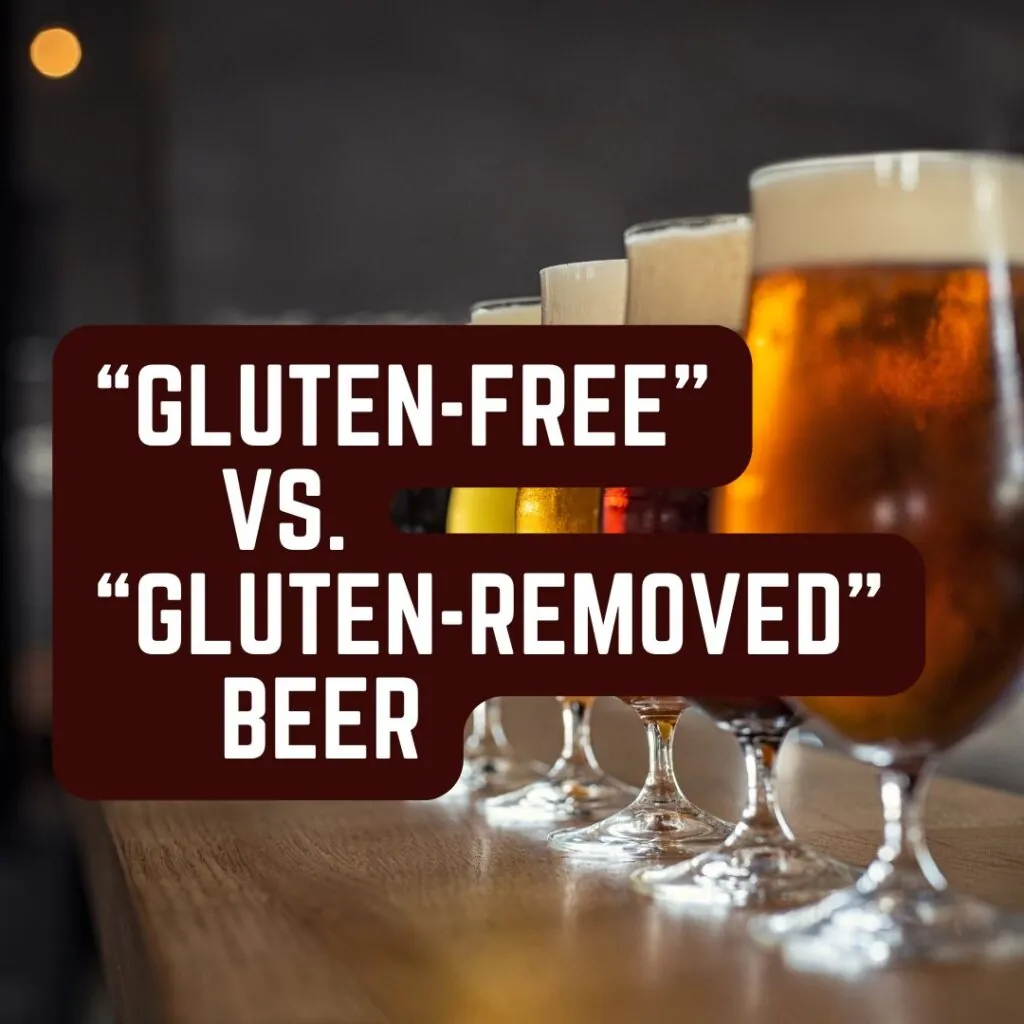
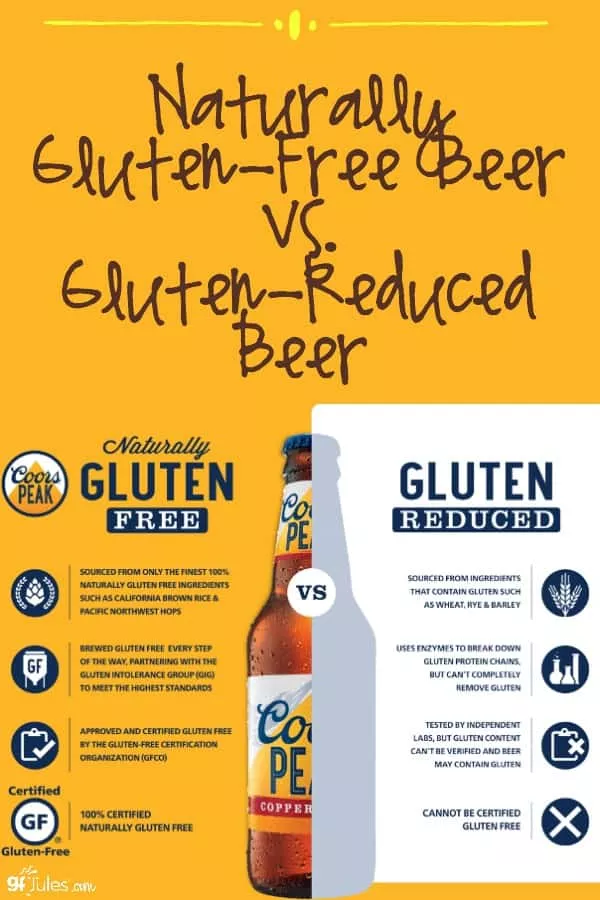
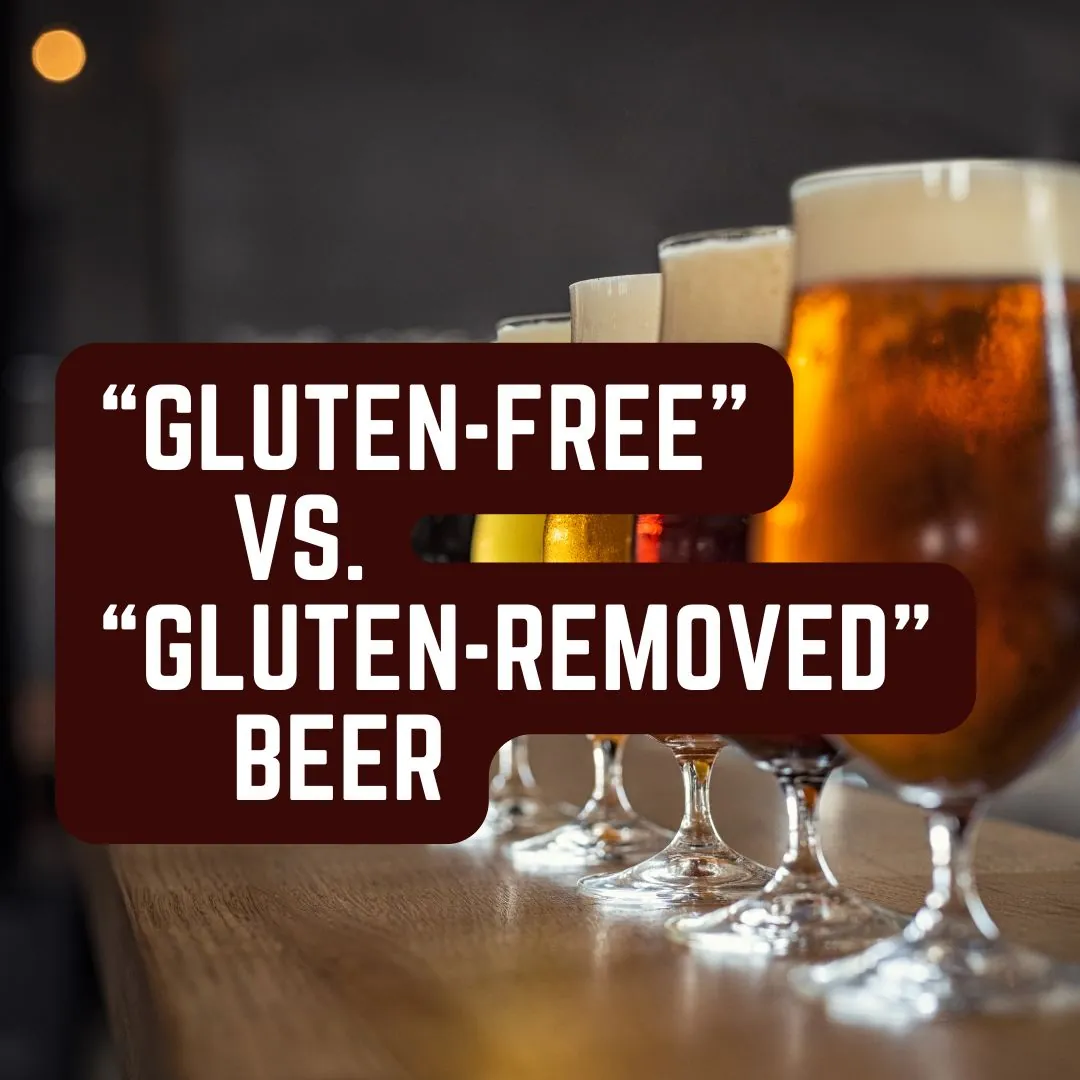


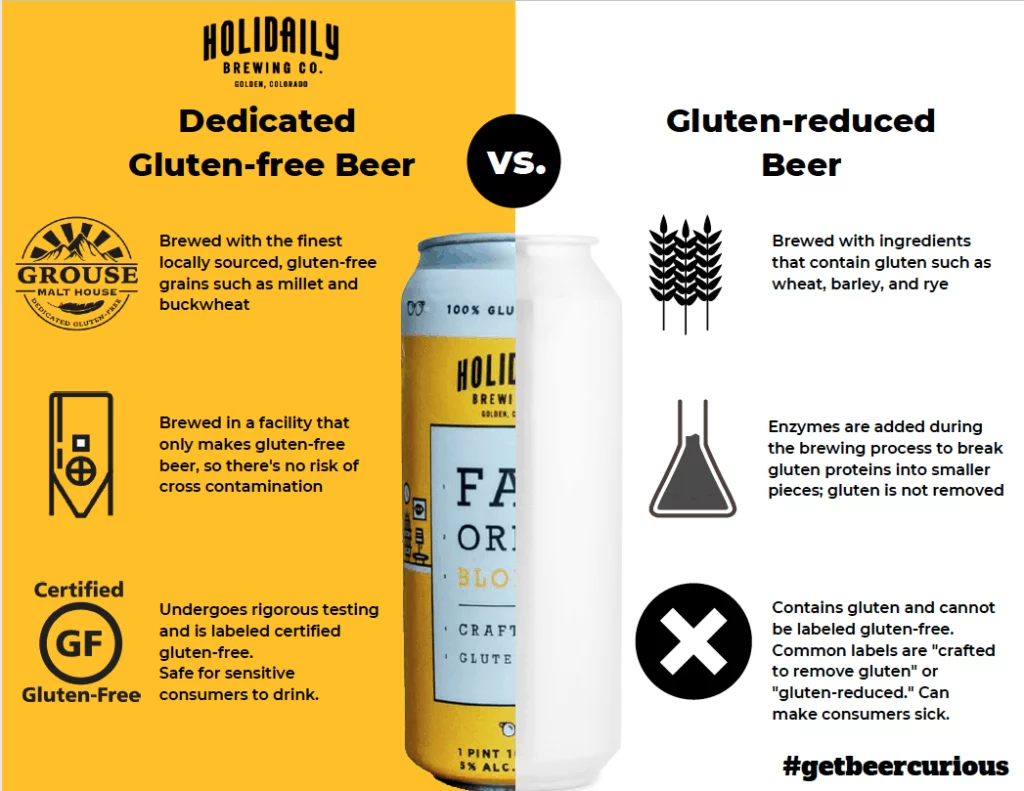
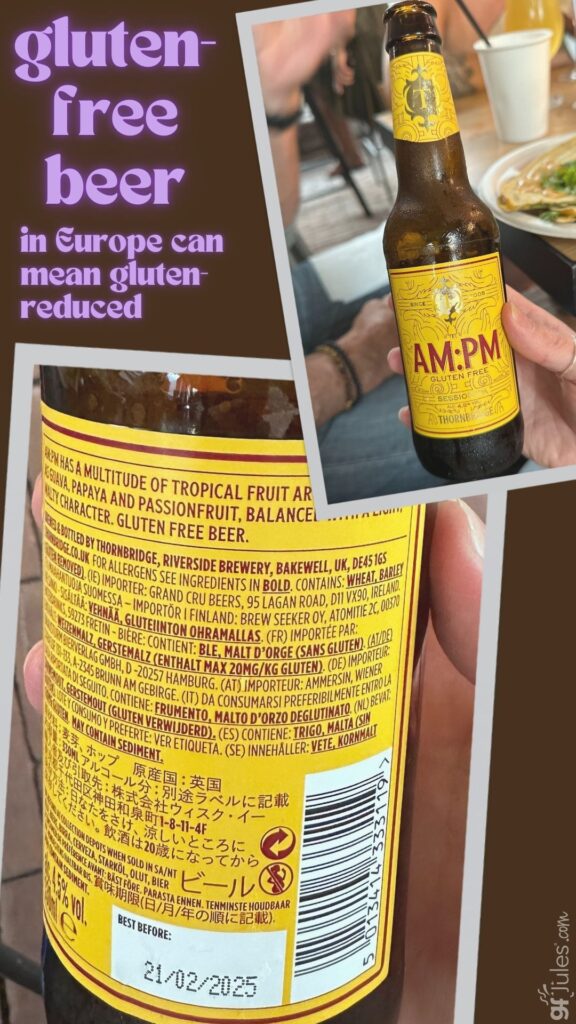
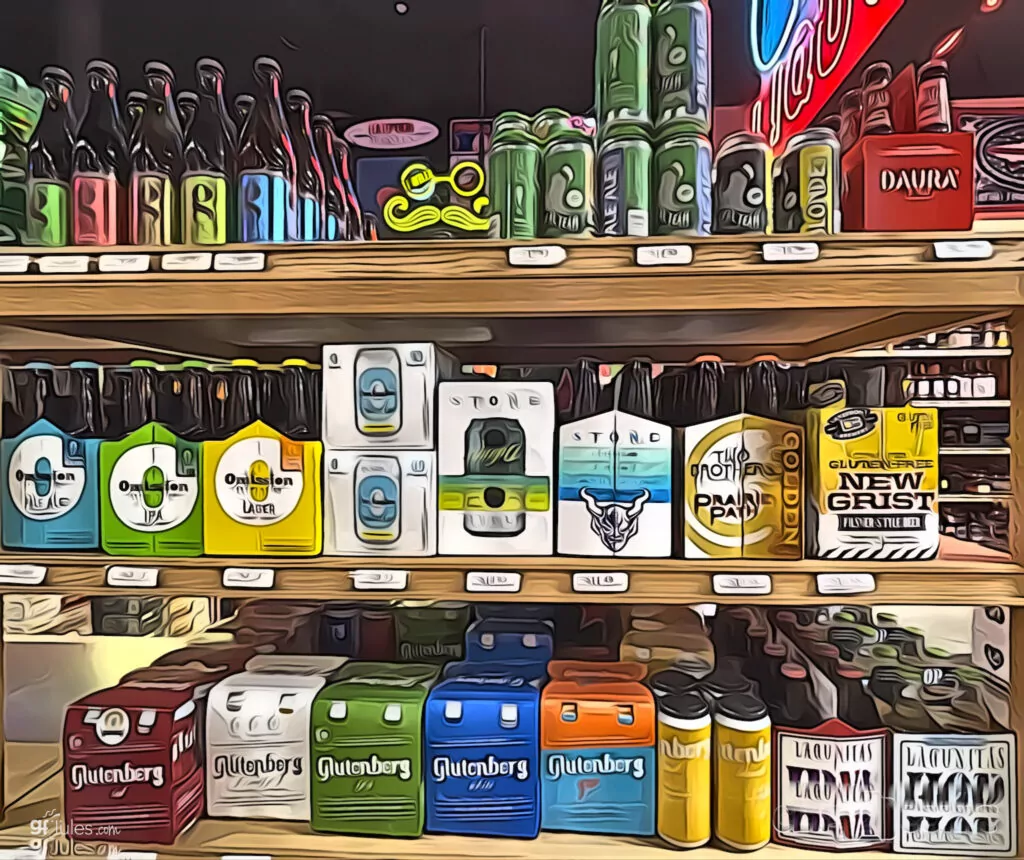

















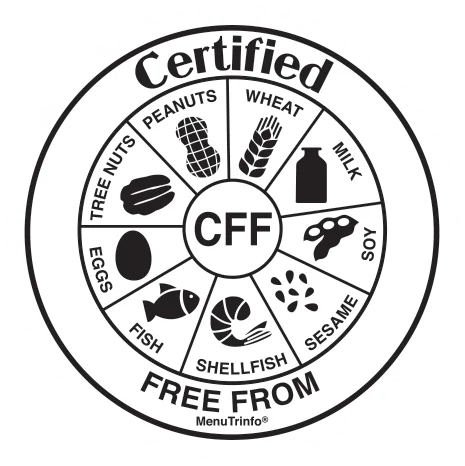

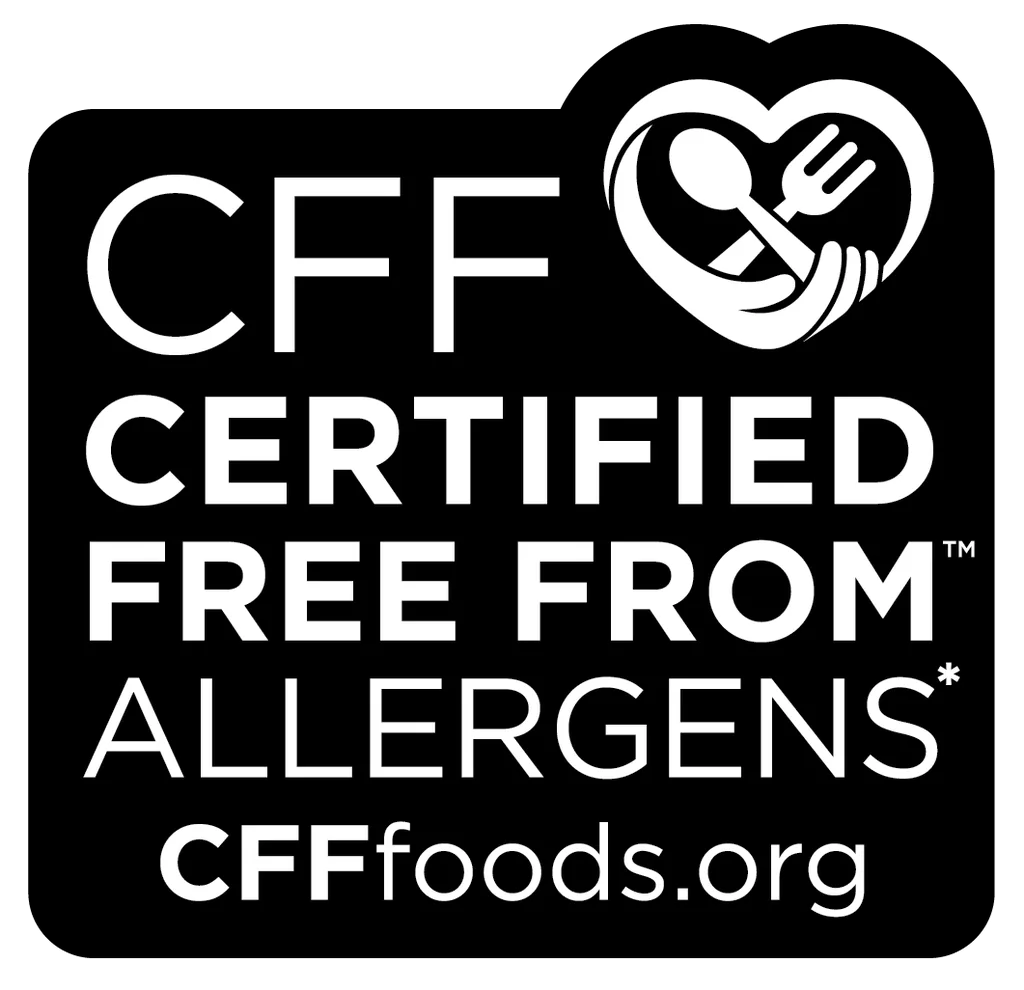
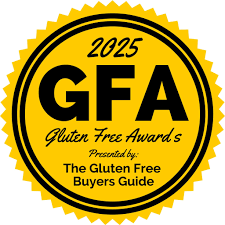
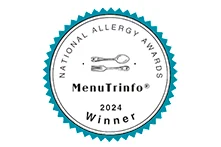
Finally! Now I understand the differences between gluten-free and gluten-reduced beer! Why does it have to be so complicated with these beer companies? It’s like they don’t want you to get there really is a difference 🤔🧐
I know, Jim! I’m glad this article made it a little more clear, but we all still have to be on our guard at bars and restaurants, but also at beer stores where these gluten-reduced beers will be intermingled in the gluten-free section. There is a lot of confusion around the safety, despite the difference in labeling. Cheers!
~jules
I’ve been waiting for this beer to come to PA. I have celiac and love beer. Unfortunately, it never even got here! How do you know it’s not going to sell, before you even tried to market it or get it available to people?! ????????????
I know, Patricia! They did a test market in Portland and Seattle only – so disappointing because it really was a great beer! 🙁
~jules
I am so bummed this beer has been discontinued. I loved it!
Me too, Erica. It was the best, easy drinking American-style GF beer I’d ever had. Really sad to see it go.
~jules
Be interested to know how long they will persevere if it doesn’t hit their volume thresholds. They have a track record of innovating poorly and removing the brands when they don’t sell. Just a hunch but if you want it get it while you can. There won’t be enough volume here for them to sustain it.
The craft guys do it for the love of beer – these guys do it to make a buck
Hi Tom, thanks for your comment. Not sure which brand you’re speaking of, specifically, but it’s sad to note that Dogfish Head recently discontinued their one gluten-free beer, T’weason Ale. For all of us gluten free folks who enjoy beer, I hope it’s not a trend!
~jules
Sorry – wasn’t referring to gluten free – just Molson Coors in general. If it doesn’t sell and sell lots (which is highly unlikely) it will disappear. They’re only doing this for commercial gain and they’ll abandon after year 1 (may be wrong – but their portfolio is littered with failed next big things
Please distribute nationwide, Michigan has so many beer lovers and I personally need Gluten free. If the small micro brewers can I am sure Coors can find a way.
Thanks for chiming in, Roger. I’m sure Coors is listening!
~jules
Well it is nice of coors to sponsor the article on there GF beer yet it is only viable in Washington state . So tell coors when it is rolled out nation wide sponsor another article
Now there are 2 to choose from & still so many of us have not been able to taste 1!!!
Todd, I’m holding out hope that Coors Peak will be distributed nationwide SOON! Write in or post on their social media that you want it available in your area too. It couldn’t hurt! 🙂
~jules